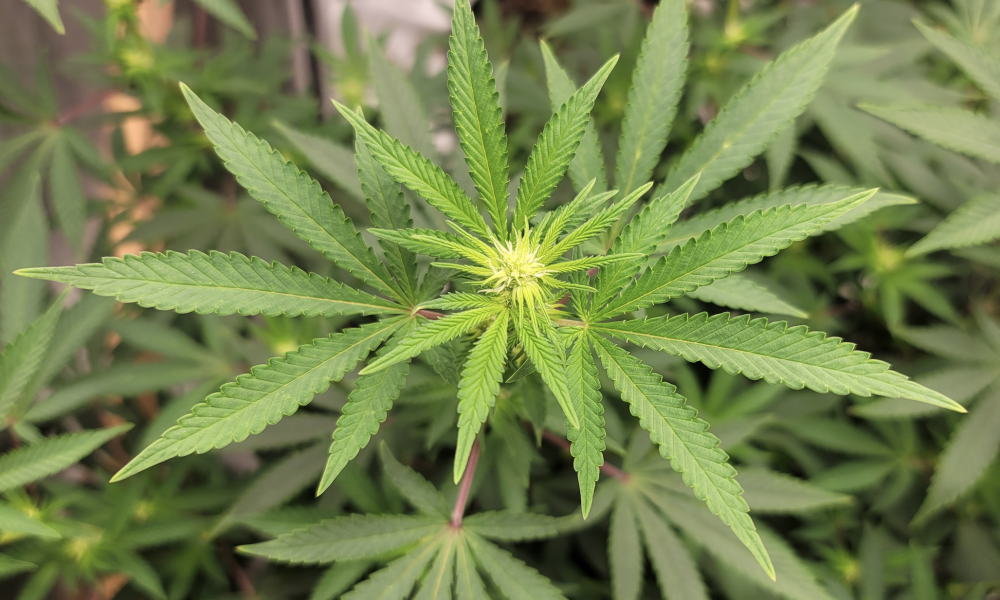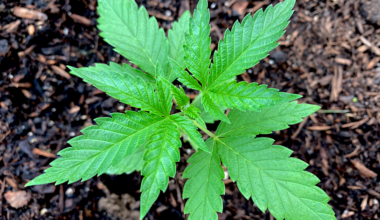As a marijuana legalization campaign in Missouri continues to fight back opposition from prohibitionists and certain cannabis reform allies, a new poll finds that a strong majority of voters in the state are ready to approve the ballot initiative in November.
The poll from SurveyUSA, which is sponsored by eight local TV stations, shows that 62 percent of Missouri likely voters are “certain to vote yes” on Amendment 3.
That includes majorities across all political affiliations: Democrats (77 percent), independents (57 percent) and Republicans (54 percent). There’s also majority support among each age demographic surveyed, except for those 65+ where there’s still a plurality (45 percent) in favor of the initiative.
The survey question is particularly specific, not just asking respondents directly about the likelihood of their vote but also detailing the key provisions of the legalization ballot initiative. Here’s the question:
Missourians will also vote on a ballot measure, Amendment 3, which would …
Change the state constitution to allow the purchase, use, and sale of marijuana for personal use for adults over the age of 21,
Allow people convicted of some non-violent marijuana offenses to petition for their release or parole and to have the records of those charges cleared,
Place a 6 percent tax on retail marijuana sales
On Amendment 3, are you …? (certain to vote yes/certain to vote no/not certain)
“On Amendment 3, the ballot measure which would legalize the personal use of marijuana in Missouri, voters today pass the measure by a margin of nearly 3:1,” SurveyUSA said in an analysis. “The measure passes by double digits among all demographic groups, including among those aged 65+, where it passes by 12 points.”
“SurveyUSA notes that regardless of the topic and regardless of the state, voters often have a built-in preference for maintaining the status quo, and that ballot measure polling tends to tighten notably as Election Day approaches and ‘vote no’ campaigns gather steam—but today, 50 days until votes are counted, Amendment 3’s support appears quite robust,” it continues.
The results of this survey—which involved interviews with 670 likely voters in Missouri from September 14-18—stand in stark contrast to another recent poll that found most people are opposed to the ballot measure.
However, as Legal Missouri 2022 was quick to point out, the same firm behind that survey previously missed the mark when it found just slim support for a 2018 medical cannabis ballot measure that ultimately passed overwhelmingly.
This new survey is welcome news to the campaign, which has battled legal challenges and continues to face opposition not just from prohibitionists but also a coalition of reform advocates who have taken issue with the particulars of the proposal.
Even the Missouri Democratic Party is taking a neutral position on the measure in light of those concerns, even though the party supports legalization generally.
A group of activists recently formed a campaign—comprised of lawmakers, a former Missouri lieutenant governor, legalization supporters and the director of the state chapter of Americans for Prosperity—to convince voters to oppose the initiative and compel the governor to add cannabis reform to the legislative agenda of a special session.
To that end, Rep. Ron Hicks (R) introduced a revised marijuana legalization bill last week, with the hopes that the filing will spur the governor to expand the special session to allow consideration of the emergency reform legislation as an alternative to a cannabis ballot measure.
The bill was filed just one day after the Missouri Supreme Court gave a final ruling on a legal challenge to the activist-led initiative that secured its placement on the ballot.
Hicks’s legislation has been slightly revised since it was introduced and advanced through committee during the regular session earlier this year. One key change is that there’s now an emergency clause that references the ballot initiative, making it so the legislation would take effect immediately upon passage.
Gov. Mike Parson (R) recently said that he would not add marijuana legalization to the agenda for the special session focused on tax relief and agriculture issues that convened last week. However, Hicks said in a press release that “it is my hope that legislative action on my Marijuana Freedom Act will incentivize the governor to support passage of this legislation.”
Meanwhile, a key Missouri Democratic lawmaker who chairs the state’s Legislative Black Caucus, Rep. Ashley Bland Manlove (D), also recently called on voters to reject the legalization initiative.
Bland argued that the initiative lacks holistic provisions to make the cannabis market equitable, unnecessarily adds penalties for certain offenses and falls short of resolving the racial disparities of cannabis criminalization—though she conceded it is likely to be approved by voters.
Some of the state’s Democratic politicians do support the legalization ballot measure, however.
Democratic Senate candidate Trudy Busch Valentine, for example, tweeted on Friday that she was backing the initiative, citing its expected tax revenue and other benefits.
A lawsuit filed last month sought to keep the reform proposal off the ballot after it was certified by the secretary of state. But after two lower courts dismissed the challenge, the state Supreme Court delivered the final word that the legal battle is over last week.
Here’s what the Legal Missouri 2022 initiative would accomplish:
Adults 21 and older could purchase and possess up to three ounces of cannabis.
They could also grow up to six flowering marijuana plants, six immature plants and six clones if they obtain a registration card.
The initiative would impose a six percent tax on recreational cannabis sales and use revenue to facilitate automatic expungements for people with certain non-violent marijuana offenses on their records.
Remaining revenue would go toward veterans’ healthcare, substance misuse treatment and the state’s public defender system.
The Department of Health and Senior Services would be responsible for regulating the program and issuing licenses for cannabis businesses.
Regulators would be required to issue at least 144 microbusiness licenses through a lottery system, with priority given to low-income applicants and people who have been disproportionately impacted by drug criminalization.
Existing medical marijuana dispensaries would also be first in line to start serving adult consumers with dual licenses.
Regulators could create rules around advertising, but they could not be any more stringent than existing restrictions on alcohol marketing.
Public consumption, driving under the influence of cannabis and underage marijuana use would be explicitly prohibited.
A seed-to-sale tracking system would be established for the marijuana market.
Local jurisdictions would be able to opt out of permitting cannabis microbusinesses or retailers from operating in their area if voters approve the ban at the ballot.
The measure would further codify employment protections for medical cannabis patients.
Medical marijuana cards would be valid for three years at a time, instead of one. And caregivers would be able to serve double the number of patients.
—
Marijuana Moment is tracking more than 1,500 cannabis, psychedelics and drug policy bills in state legislatures and Congress this year. Patreon supporters pledging at least $25/month get access to our interactive maps, charts and hearing calendar so they don’t miss any developments.![]()
Learn more about our marijuana bill tracker and become a supporter on Patreon to get access.
—
Meanwhile, state health officials are already taking steps to prepare for voter approval of the legalization measure.
A different campaign, Fair Access Missouri, separately explored multiple citizen initiatives this year with the hopes of getting at least one on the ballot, but did not end up submitting signatures for any of the measures.
German Lawmakers Tour California Marijuana Businesses To Inform National Legalization Plans
Photo courtesy of Mike Latimer.
Medical Disclaimer:
The information provided in these blog posts is intended for general informational and educational purposes only. It is not a substitute for professional medical advice, diagnosis, or treatment. Always seek the advice of your physician or other qualified healthcare provider with any questions you may have regarding a medical condition. The use of any information provided in these blog posts is solely at your own risk. The authors and the website do not recommend or endorse any specific products, treatments, or procedures mentioned. Reliance on any information in these blog posts is solely at your own discretion.







